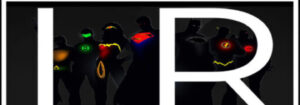I received an advanced copy of the book from the publisher, free and without obligation
It has been a very long time since I’ve read a great horror novel. Rami Ungar’s Rose (2019) is actually the first horror novel I’ve read this year while being content with reading other forms of content related to the genre (such as short stories, novellas, etc.). And I wasn’t disappointed with my choice.
To start with, they used to say that a book cannot be judged by its cover, but nowadays owing to the wide popularity of e-books, many potential readers do assess a book’s quality by its cover. Rose’s cover design by The Gilded Quill is majestic and pays a prominent tribute to the content as well. The lead character is shown on the front surrounded by trees in a forest and the quality of the coloring and illustrations is awe-inspiring. If I hadn’t received a free copy in exchange for an honest review then the cover would’ve been my main reason for picking up this book.
The plot follows our protagonist, Rose Taggert who wakes up with 80% of her memory intact only to discover that she has become a plant-like creature. The storyline is quite Kafkaesque in nature albeit with a more modern take on the classic tale.
Nowadays, they say that a book or film’s villain is more important than the hero, and if we keep that theory in mind, then Rose’s antagonist, Paris Kuyper, is certainly one of the most cunning fiends I’ve encountered in a work of literature. He is a true psychopath with a cleverly constructed origin and add to that his mistreatment by his father Mr. Kuyper—the latter being one of the most intriguing characters in the narrative. So by inserting a bad guy with daddy issues, Ungar has promised us one rollercoaster of a ride.
The second-best feature of Rose is the pacing. While the novel’s length is just over 200 pages, the pacing is consistent from the beginning until the ending. If I were to compare Ungar’s writing style with another author then that person would be R.L. Stine (Goosebumps, Fear Street) as the yarn is filled with suspense, romance, and drama but it never loses the horror element. It also reads more like a young-adult novel than an adult one and I have no complaints seeing that I grew up on the Fear Street series.
However, the novel is not without demerits. There were some typos and grammatical errors which disturbed the continuity of the story. For example, blunders like writing “graduation party” instead of “engagement party”, “Pairs” instead of “Paris” make for amateurish mistakes. I’m not sure whether the primary cause for this is that this is an ARC and not a final version, but whatever the case, the editing team should’ve done a better job.
Secondly, I felt that the overall planning of the narrative was amateurish. Rose is Ungar’s first novel published by a press. He has self-published three novels and one short-story collection prior to Rose so he is not by any means a new author. However, Rose comes across more as a B-movie than a proper horror novel and I thought that a more experienced writer could have improved on the follow-through of the mildly clichéd plot.
As I mentioned earlier, Rose is B-movie material but that doesn’t mean that it would make a bad script. The story could be made into an awesome film or miniseries. And with the original author’s input, the adaptation might even end up being superior to the source material. This is because the variety of visualization in the novel is astounding such as Rose’s plant-like structure, the scary-looking yew and orange trees, figures from Japanese folklore such as the Oni, etc. These would be even bettered by their transition to the big or small screen. I also favored the amount of references to Japanese culture such as their history, language, supernatural beliefs, and much more owing to my own fandom of anime. I was not surprised by finding out later on that Ungar is also an anime fan, and the influence of this art form showed conspicuously in his book. If I could name any anime which Rose reminded me of then that would be Death Note owing to the show itself featuring a cursed book and other similar elements.
To end with, Rose’s plot might not be the most original but Ungar carries out a near-perfect utilization of the storyline. Nowhere does the story slow down nor does the fear factor lessen in any way throughout the 200-plus pages. I’m looking forward to reading more works by Ungar, and seeing that this is only his initial entry in the traditional market, I can’t wait to see what he brings next to the genre.



[…] horror literature. The last work of horror I analyzed on Literary Retreat was Rami Ungar’s Rose (2019). The previous horror anthology I reviewed was Garden of Fiends (2017) by Mark Matthews which was […]